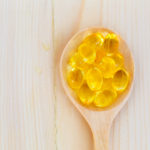By David Blyweiss, M.D., Advanced Natural Wellness
August 18, 2017
- Correct this deficiency and amazing things can happen
- Up to 75% of all Americans are D-ficient
- A strong weapon against aging, illness and death
Some people refer to their bodies as “machines”. But I have to tell you. Keeping your body finely tuned is a great deal more complicated than, say, maintaining a car. You can’t “fix” your body by clearing a pipe, turning a wrench or replacing a hose.
However, there are many things that can help make your body less likely to break down and succumb to age, illness, pain, depression or early death.
Maintaining adequate levels of vitamin D is one of them. For example patients with low vitamin D levels….
- Have more than double the risk of a heart attack
- Are about 57% more likely to develop type 2 diabetes
- Have a greatly increased chance of premature death
- Are much more likely to suffer from depression
- Have more bone loss and bone mineralization defects associated with increased frailty and bone fractures
- Are at higher risk of accelerated mental decline, including about a 50% greater chance of developing Alzheimer’s.
Now if you think your chances of developing vitamin D deficiency is low, I’ve got some news for you. As long as you’re living and breathing, you’re at risk running low on vitamin D.
Up to 75% of Americans are D-ficient
Open your arteries, improve blood flow for a new health miracle...
Did you know your circulatory system has over 60,000 miles of arteries, veins and other blood vessels, if stretched end to end?
But as you age, your blood vessels undergo changes, which may cause them to stiffen, thicken and get clogged.
GOOD NEWS! Doctors have now identified a “Miracle Molecule” inside your arteries that helps OPEN your arteries and IMPROVE blood flow.
It’s what Dr. Valentin Fuster calls it, "One of the most important discoveries in the history of cardiovascular medicine."To you, that means...
- Healthy blood pressure
- Sharper mind and memory
- Skyrocketing energy and muscular strength
- Increased pleasure and passion in the bedroom
- Improved circulation to every cell and organ in your body
Go here to discover a new natural way to significantly boost the levels of this miracle molecule in YOUR body NOW!
My new patients are always surprised when I include vitamin D testing in their initial blood workup. It’s simply something most people don’t believe they can be deficient in.
But at minimum – when the cut-off for deficiency is set at 20 ng/ml concentrations of 25-hydroxy vitamin D – about 40% of Americans are deficient. This is a dreadful statistic.
However many experts, including myself, believe the absolute minimum deficiency point should be set at 30 ng/ml. In this case, the number of people here in the U.S. considered deficient rises to a whopping 75%.
If 40% is dreadful, I’d have to say 75% is catastrophic. It also means that anyone can fall prey to deficiency in this life-giving nutrient… even you.
This makes it extremely important to have your vitamin D levels tested. All you have to do is ask your doctor for a 25-hydroxy vitamin D test.
If your levels are low, you’re at risk of a short lifespan marked with pain, illness, depression and mental decline.
The World's Quickest Solution for Ending Prostate and Urinary Misery
This has recently been revealed to be one of the only real breakthroughs in prostate health.
The seeds of a strange fruit (sometimes called "Chinese Apples") hold powerful phytonutrients that are a revolution in prostate health.
In fact, UCLA and Veterans Administration research have now proved this to be true.
Not only that, but it may be the worlds quickest solution for ending prostate misery.
Simply stated, these phytonutrients represent a huge step beyond beta sitosterol, saw palmetto, and other phytosterols alone.
Simply click HERE if you want to have fast prostate relief...restful, uninterrupted sleep...no more constant "urges to go"...enhanced virility...and optimal prostate support for life.
But when you correct this deficiency, amazing things can happen.
A Strong Weapon against Aging, Illness and Death
Vitamin D is one of your strongest weapons against aging, illness and death.
It reduces your risk of heart disease, diabetes, cancer and Alzheimer’s. It increases energy levels, boosts physical strength, shuts down pain and helps boost the absorption of minerals that protect your bones. Hundreds of genes look to vitamin D to function better and most tissues/organs have vitamin D receptors on them. In fact, it is better defined as a hormone…not just one of a number of vitamins.
Vitamin D even wards off several bacterial and viral infections, protects against autoimmune disorders and fights off depression. Plus, it can save you from a premature death.
To achieve these remarkable results, take the results of your 25-hydroxy vitamin D test seriously.
If your levels are 30 ng/ml or lower, take at least 8,000 IU of vitamin D3 in the cholecalciferol form (better if it has low dose vitamin K2 and even better with a bit of vitamin A too) each day and retest in three months.
If your levels are 31 to 40 ng/ml, supplement with a 5,000 IU daily combination for three months. Then retest.
If your numbers are over 40, you’re not deficient. Still, it’s a good idea to take 2,000-4,000 iu daily to maintain sufficient levels. Shoot for a total of 60-75 ng/ml, especially if you’ve been diagnosed with an autoimmune issue.
SOURCES:
Giovannucci E, et al. 25-hydroxyvitamin D and risk of myocardial infarction in men: a prospective study. Arch Intern Med. 2008 Jun 9;168(11):1174-80.
Mitri J, et al. Vitamin D and type 2 diabetes: a systematic review. Eur J Clin Nutr. 2011 Sep;65(9):1005-15.
Schöttker B, et al. Vitamin D and mortality: meta-analysis of individual participant data from a large consortium of cohort studies from Europe and the United States. BMJ. 2014 Jun 17;348:g3656.
Anglin RE, et al. Vitamin D deficiency and depression in adults: systematic review and meta-analysis. Br J Psychiatry. 2013 Feb;202:100-7.
Rizzoli R, et al. Vitamin D supplementation in elderly or postmenopausal women: a 2013 update of the 2008 recommendations from the European Society for Clinical and Economic Aspects of Osteoporosis and Osteoarthritis (ESCEO). Curr Med Res Opin. 2013 Apr;29(4):305-13.
Miller JW, et al. Vitamin D Status and Rates of Cognitive Decline in a Multiethnic Cohort of Older Adults. JAMA Neurol. 2015 Nov;72(11):1295-303.
Littlejohns TJ, et al. Vitamin D and the risk of dementia and Alzheimer disease. Neurology. 2014 Sep 2;83(10):920-8.
Forrest KY, et al. Prevalence and correlates of vitamin D deficiency in US adults. Nutr Res. 2011 Jan;31(1):48-54.







